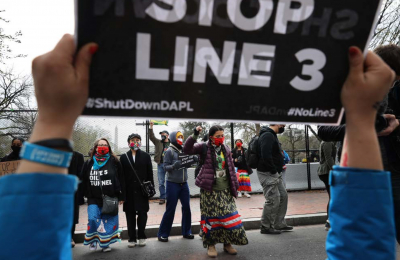“It has become clear that the unaccountable exploitation and greed driving the climate crisis is also driving violence against land and environmental defenders. In 2020, we recorded 227 lethal attacks – an average of more than four people a week – making it once again the most dangerous year on record for people defending their homes, land and livelihoods, and ecosystems vital for biodiversity and the climate,” describe the authors, adding the fact that their figures are almost certainly underestimate, as many attacks remain unreported.
Most of the attacks in 2020 were in Latin America, with Colombia ranking first for the second year in a row - 65 land and environmental defenders murdered. The report here confirms the negative impact of the COVID-19 lockdowns, which led to defenders being targeted in their homes, together with the government protection measures being cut (1). It was often cases of human rights defenders and community leaders across the country. In Mexico, with 30 lethal attacks documented, logging was linked to almost a third of these attacks, and half of all the attacks in the country were directed against Indigenous communities. In the Philippines, over half of the lethal attacks were directly linked to defenders’ opposition to mining, logging, and dam projects.
As to the responsible industries causing the climate crisis and these attacks, Global Witness draws the attention to the business and extractive economic model that prioritises profit over human rights and the environment. At the same time, governments unfortunately often fail in stopping the violence and protecting defenders' rights and companies continue in human rights abuses.
Further reading:
[1] Violations of environmental and human rights and weakened possibility of public monitoring and participation in decision-making or protesting during the global pandemic are the topic of Arnika's report Environmental destruction in times of coronavirus, including the case of persecution of Belarusian activists opposing the Brest battery plant.


